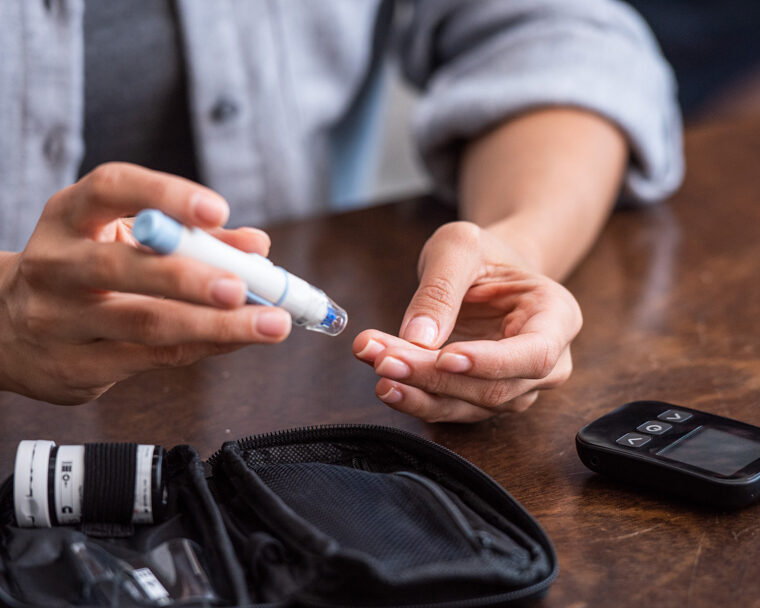Diabetic retinopathy is a serious eye condition that can occur as a complication of diabetes, potentially leading to vision loss or blindness if left untreated. The good news is that proactive management of diabetes and regular eye care can significantly reduce the risk of developing this condition. Here’s what you can do today to protect your vision and prevent diabetic retinopathy.
1. Maintain Optimal Blood Sugar Levels
Keeping your blood sugar levels within your target range is crucial in preventing diabetic retinopathy:
- Monitor Your Blood Sugar: Regularly check your blood glucose levels as recommended by your healthcare provider. Use a glucose meter or continuous glucose monitor to stay informed.
- Follow a Balanced Diet: Eat a diet rich in vegetables, lean proteins, and whole grains while limiting sugary and high-carb foods. A registered dietitian can help create a meal plan tailored to your needs.
- Exercise Regularly: Engage in physical activities like walking, swimming, or cycling. Aim for at least 150 minutes of moderate exercise per week, as physical activity helps regulate blood sugar levels.
2. Control Blood Pressure and Cholesterol
High blood pressure and elevated cholesterol levels can exacerbate the effects of diabetes on the eyes:
- Monitor Your Blood Pressure: Keep your blood pressure within the recommended range (usually less than 140/90 mmHg). Regular check-ups with your healthcare provider can help track and manage your levels.
- Manage Cholesterol Levels: Follow a heart-healthy diet to help maintain healthy cholesterol levels. Foods high in omega-3 fatty acids, like fish, and fiber-rich foods, such as fruits and vegetables, can be beneficial.
3. Schedule Regular Eye Exams
Regular eye exams are essential for early detection and management of diabetic retinopathy:
- Annual Eye Exams: Schedule a comprehensive eye exam with a qualified eye specialist every year. During these exams, your eye doctor will check for signs of diabetic retinopathy and other potential eye issues.
- Dilated Eye Exams: Your eye doctor may perform a dilated eye exam to get a clear view of the retina and detect any changes or damage early on.
4. Adhere to Diabetes Medications
Taking your prescribed medications as directed can help you manage diabetes effectively:
- Follow Prescriptions: Take oral medications or insulin injections as prescribed by your healthcare provider. Do not skip doses or alter your medication regimen without consulting your doctor.
- Review Your Medications: Regularly discuss your medication regimen with your healthcare provider to ensure it remains effective and adjust as needed.
5. Adopt Healthy Lifestyle Habits
Lifestyle choices play a significant role in managing diabetes and protecting your vision:
- Avoid Smoking: Smoking increases the risk of diabetic retinopathy and other diabetes-related complications. If you smoke, seek support to quit.
- Limit Alcohol Consumption: Excessive alcohol can affect blood sugar levels and overall health. Limit your alcohol intake and discuss it with your healthcare provider.
- Manage Stress: Chronic stress can impact blood sugar levels and overall health. Practice stress-reducing techniques such as mindfulness, meditation, or deep breathing exercises.
6. Educate Yourself About Diabetes Management
Understanding your condition and how it affects your eyes can empower you to make informed decisions:
- Stay Informed: Read reliable resources about diabetes management and diabetic retinopathy. Knowledge about your condition can help you adhere to treatment plans and recognize symptoms early.
- Participate in Diabetes Education: Engage in diabetes education programs or support groups to learn from healthcare professionals and other individuals with diabetes.
7. Be Alert to Symptoms
While early stages of diabetic retinopathy may not present symptoms, be vigilant for any changes in your vision:
- Watch for Changes: Report any sudden changes in vision, such as blurred vision, seeing floaters, or dark spots, to your eye doctor immediately.
- Document Symptoms: Keep a log of any visual changes or symptoms and share them with your healthcare provider during your appointments.
Conclusion
Preventing diabetic retinopathy involves a proactive approach to managing diabetes and maintaining regular eye care. By keeping blood sugar levels in check, managing blood pressure and cholesterol, adhering to medications, and scheduling routine eye exams, you can significantly reduce your risk of vision complications. Remember, the steps you take today can have a profound impact on preserving your vision for the future. Always consult with your healthcare team for personalized advice and support in managing your diabetes and protecting your eye health.



